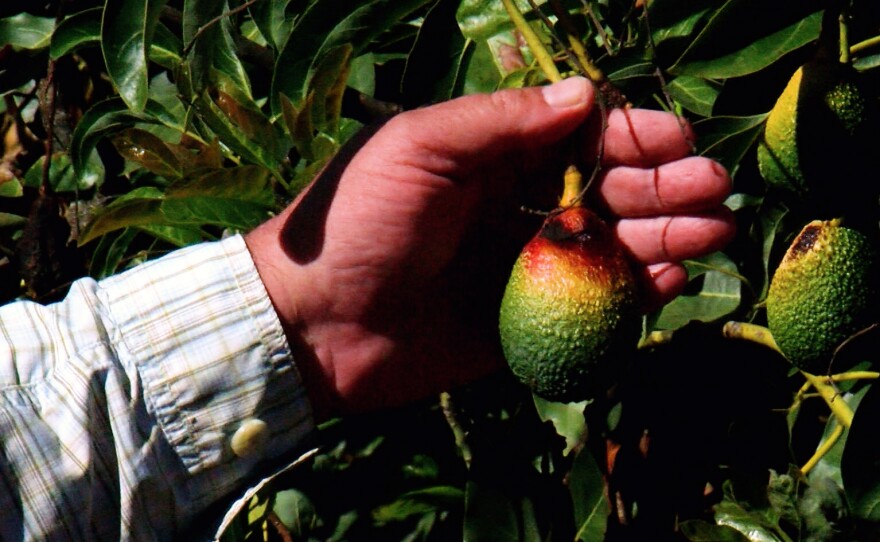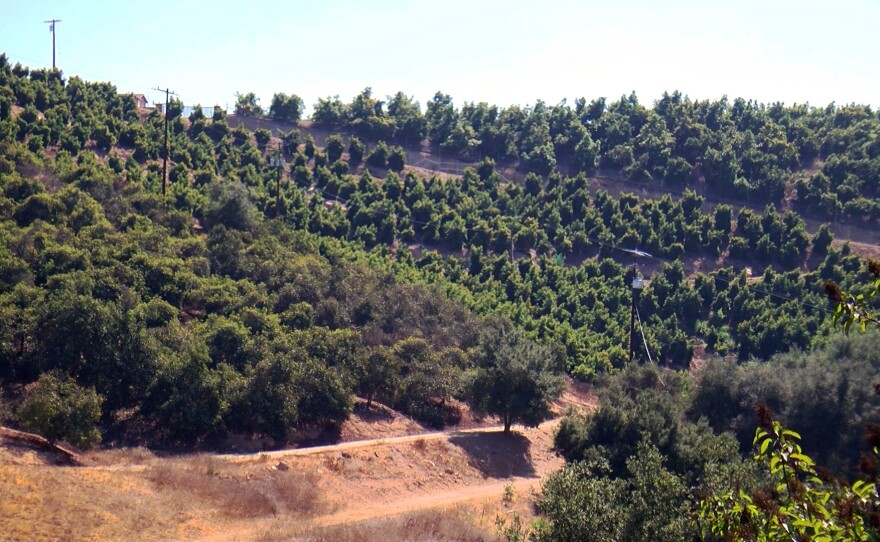San Diego avocado growers are concerned about increased pest threats to their crops now that the U.S. Department of Agriculture (USDA) won't be inspecting Mexican imports.
The USDA announced the change last month, saying it is handing over pest inspections to the Mexican government because of threats of violence against its inspectors. The USDA did not respond to an email seeking comment.
In a statement, Mexico's Agriculture Department said that with the agreement, the USDA is "recognizing the commitment of Mexican growers, who have not had any sanitary problems in exports for more than 27 years."
But U.S. growers are concerned.
"That decision was made unilaterally, without any consultation of our domestic growers," said Jason Cole, chair of the California Avocado Commission.
He's worried that Mexican inspectors won’t be as rigorous as the USDA’s.
"The bugs that are down there are some of the worst ones when it comes to avocado pests," Cole said. "So it would be devastating to our growers if they were to get through."
There has been trouble in the past. Infected avocados from Mexico in the '90s introduced persea mites to San Diego. The mites eat through the leaves, causing them to fall off, exposing and sun-bleaching the fruits.
Robert Jackson owns avocado orchards in Bonsall and Escondido. He showed us an example of avocados damaged by persea mites.

"That type of fruit right there is not marketable," he said, pointing to a sun-bleached avocado in his orchard.
Jackson said having U.S. officials do the inspections was to protect California growers and allow Mexico to import avocados.
"We had in the last three years, two different shutdowns of the system where Mexico was stopped from importing avocados into the U.S. for a period of time because they were threatening the U.S. inspectors," he said.
The latest shutdown was in 2022, when an inspector and his family were threatened, according to the USDA. In June, the U.S. temporarily suspended avocado inspections because of security concerns.

Since 1997, inspectors hired by the USDA's Animal and Plant Health Inspection Service (APHIS) have been guarding against avocados infected with pests and diseases. They have also been threatened for refusing to certify shipments containing avocados from non-certified states.
Only two Mexican states are certified to import to the U.S. — Michoacán and Jalisco.
In an open letter to U.S. Secretary of Agriculture Tom Vilsack, the Avocado Commission demanded to know how using Mexican inspectors would be in the "best interest" of U.S. growers.

According to the county's latest crop report, avocado was one of San Diego's top 10 crops, bringing in nearly $100 million last year.
The USDA’s decision could have implications beyond avocados. San Diego County Farm Bureau president Dana Groot said it sets a bad precedent for other imported crops.
"The problem is San Diego County, and even California, will lose some degree of sovereignty, or local control, over food supply," he said.
He said it’s a national concern if the domestic food supply is lost.
About 80% of avocados sold in the U.S. come from Mexico. Domestic growers are not able to meet demand or provide the fruit year-round.







